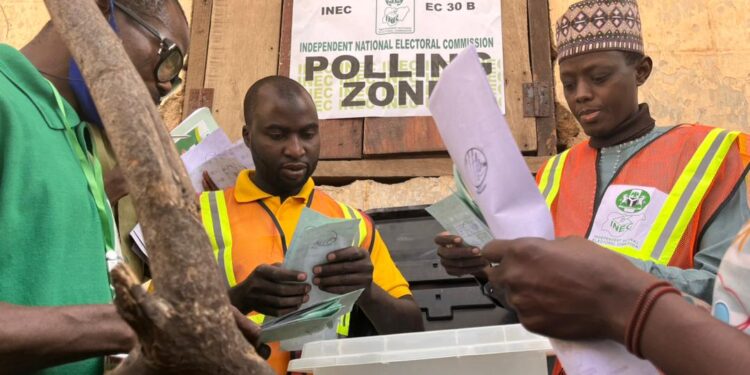The Education, Social and Health Mission (MESH), the non-governmental organisation (NGO) of the Nigerian Supreme Council for Islamic Affairs (NSCIA), has urged the Independent National Electoral Commission (INEC) to act on the failure of the Bimodal Voter Accreditation System (BVAS) to transmit election results real-time as expected.
The organisation, which was one of the accredited observers for the February 25 elections, made the call in its post-election report, signed by Hajiya Khadijah Oladipupo, National Coordinator, MESH Observers Group on Friday in Abuja.
She noted that the elections were observed with the support of a Coalition of Muslim Organizations across the country, where it observed the Continuous and Accreditation Voters System (CVAS) procedure where voters were accredited and voted at the same time using the Bimodal Voter Accreditation System (BVAS).
“Though the BVAS machine was designed to check manipulations, the technology needs to be improved to transmit election results in real time to avoid rigging in order to protect the sanctity of the election results,” she said.
While commending Nigerians for their determination, patience and resilience displayed during and after the elections, she said that despite the long queues at some polling units (PUs), Nigerian voters demonstrated commitment to participate in the process and a strong desire to ensure their votes count.
“The elections leaves lessons to be learnt in strengthening our democratic processes as a country. MESH observers across the country gave positive report about substantial adherence to the electoral process and procedure as stipulated by the electoral legal framework.
“Of particular importance was the BVAS technology deployed for accreditation and voting which has worked maximally across the country with very little hitches recorded.
“High percentage of female electoral officials and large turnout of female voters was observed. Security personnel showed high degree of professionalism during the election across the country,” Oladipupo said.
She, however noted that logistical challenges and isolated incidents of political violence, late arrival of electoral officers, overcrowded PUs, over voting, late hour collation of results overshadowed the largely successful electoral process and impeded a substantial number of voters from participating.
Oladipupo said “The inability of election officials to upload and transmit election results in real time via the BVAS machine gave room for apprehension in some quarters. We call on the INEC to conduct a thorough post-elections review, to draw lessons and consider improving on their logistics operations, make provision for electricity at PUs for recharging BVAS machines and light up the PUs in case the voting process runs late, and to implement the recommendations of observers groups.”
She also urged politician to play by the rules guiding the electoral process and to refrain from using provocative language, dissemination of misinformation, which could create political tension, divisiveness, violence and undermine the democratic progress in Nigeria.











